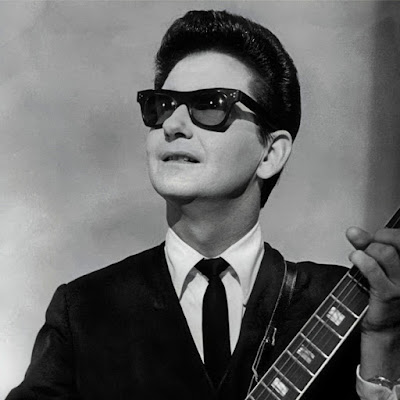Singer k.d. Lang was born in Canada and grew up in the town of Consort. Lang started singing as a child and began her musical career after attending Red Deer College.
 |
| k.d. Lang |
(sign up to follow by email)
In 1986, Lang tried to break into the American country music scene with Angel with a Lariat. The following year, she had her first country hit, a duet with Roy Orbison. Switching to a more traditional pop vocal style, Lang had her biggest pop hit in 1992 with "Constant Craving."
Read more: Biography
November 2, 1957: Ricky Nelson peaked at Number 5 on the R&B single's chart with "Be-Bop Baby."
Be-Bop Baby," written by Pearl Lendhurst and performed by Ricky Nelson, reached #3 on the Billboard Hot 100 and #5 on the R&B chart in 1957. The song appeared on his 1957 album, Ricky. The song ranked #42 on Billboard magazine's Top 50 songs of 1957.
Read more: Wikipedia
November 2, 1963: Roy Orbison made it to the Top 5 with his version of "Mean Woman Blues."
"Mean Woman Blues" was written by African American songwriter Claude DeMetrius and recorded by Elvis Presley as part of the soundtrack for his 1957 movie Loving You.
 |
| Roy Orbison |
The lyrics are about a woman who is so mean, she bruises her lover when she kisses him and can even scare a black cat. All this drives the singer wild. In 1963 the song was recorded as a single on the B-side of "Blue Bayou" by Roy Orbison and charted at #5.
Read more: Songfacts
November 2, 1968: The Grass Roots made the Top 5 in the US with "Midnight Confessions."
"Midnight Confessions," a song originally performed by the Ever-Green Blues, was made famous when they released it as a single in 1968. The lyrics describe a man who is infatuated with a married woman, knows he can never have her, and is relegated to confessing his love for her audibly, but alone.
Read more: Wikipedia
November 2, 1985: Dire Straits' "Walk of Life" entered the Billboard Hot 100 single's chart.
Mark Knopfler wrote this song to celebrate the street buskers of London, hence the references to "Be-Bop-a-Lula" and "What'd I Say," two standards that might be part of a singer's repertoire in the mid-'80s.
This was the fourth single released from Brothers In Arms. It benefited from a catchy keyboard sound (played by Alan Clark) and from the album's second single, "Money For Nothing," which established the band on MTV and on Top 40 radio in America.
Read more: Songfacts
Constant Craving
k.d. Lang


No comments:
Post a Comment